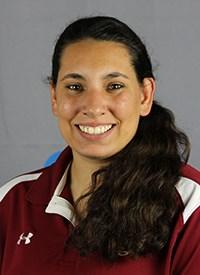Courtesy: Lia Barksey
Retirement from athletics can be a difficult transition for many athletes, especially those who have dedicated a significant amount of time and energy to their sport. Whether you are retiring due to injury, age, or simply a desire to move on, it is important to take care of yourself both physically and mentally during this time of change. Here are some tips for staying healthy and happy in retirement:
Establishing a Fitness Routine: Just because you are no longer competing at a high level doesn’t mean you should stop exercising altogether. In fact, exercise can be an important part of maintaining your physical and mental health in retirement. Whether you prefer running, yoga, or weightlifting, find an activity that you enjoy and make it a part of your daily routine.
Maintaining a Healthy Diet: As an athlete, you may have been accustomed to consuming large amounts of calories to fuel your training. However, in retirement, it’s important to adjust your diet to match your level of activity. Eating a balanced diet with plenty of fruits, vegetables, and lean protein can help you maintain your weight and stay healthy as you age.
Finding Things You Love to Do: Retirement is a time to explore new interests and hobbies. Whether it’s painting, gardening, or learning a new language, finding activities that bring you joy can help you maintain a positive outlook on life.
Redirecting Your Passion: Just because you are no longer competing in your sport doesn’t mean you have to give up your love for it. Many retired athletes find ways to redirect their passion for sports into coaching, mentoring, or volunteering in their community.
Establishing Your “New” Identity: For many athletes, their sport is a major part of their identity. In retirement, it’s important to find new ways to define yourself beyond your athletic achievements. This might involve exploring new career paths or developing new skills and interests.
Knowing That Your Sport Will Always Be a Part of Your Life: Even if you are no longer competing, your sport will always be a part of your life. Whether it’s watching games on TV or attending local sporting events, finding ways to stay connected to your sport can help you feel a sense of belonging and community.
Seeking Professional Help: Retirement can be a challenging time, and it’s okay to seek help if you need it. Whether it’s talking to a therapist or joining a support group for retired athletes, there are resources available to help you navigate this transition.
Establishing and Maintaining a Good Relationship with Exercise: Exercise can be a powerful tool for maintaining your physical and mental health in retirement. However, it’s important to find a balance that works for you. Rather than pushing yourself to the brink of exhaustion, focus on establishing a healthy relationship with exercise that allows you to stay active without risking injury or burnout.
In conclusion, retirement from athletics can be a challenging time, but with the right mindset and support, it can also be a time of growth and exploration. By taking care of yourself both physically and mentally, staying connected to your sport in new ways, and exploring new interests and hobbies, you can create a fulfilling and happy life beyond your athletic career.
ABOUT LIA BARKSEY
 Lia graduated with a bachelor’s degree in exercise science for Colorado Mesa University in 2019, where she swam competitively for 2 years, and a Masters degree in High Altitude Exercise Physiology from Western Colorado University in 2022. She was a sprint freestyler and butterflier in college. During her academic career, she developed a deep understanding of the impact of exercise on the human body. Her passion for the field led her to conduct novel research on the impact of COVID-19 on vascular function in grad school. While she is working on getting her thesis research published, she was recognized and selected to present her findings at the ACSM World Congresses in Denver this summer. Her passion for health and fitness, especially in older adults, has motivated her to start her own online restorative/ personal training business, alongside her full time career to continue her success in the exercise science field.
Lia graduated with a bachelor’s degree in exercise science for Colorado Mesa University in 2019, where she swam competitively for 2 years, and a Masters degree in High Altitude Exercise Physiology from Western Colorado University in 2022. She was a sprint freestyler and butterflier in college. During her academic career, she developed a deep understanding of the impact of exercise on the human body. Her passion for the field led her to conduct novel research on the impact of COVID-19 on vascular function in grad school. While she is working on getting her thesis research published, she was recognized and selected to present her findings at the ACSM World Congresses in Denver this summer. Her passion for health and fitness, especially in older adults, has motivated her to start her own online restorative/ personal training business, alongside her full time career to continue her success in the exercise science field.

keep swimming, although as you age, you need to rest more. In my 40’s, I dont recover nearly as well as I used to. But sometimes I throw a set together that I’m proud of.
What a timely article. After over 50 years of competitive swimming, I am hobbled by injury and facing the reality of professional and perhaps physical retirement. This realization has set me back a bit, so your thoughts on moving forward give me nourishment. I thought I would happily die in the water many years from now, just doing laps. There are other ways to love, and seek excellence. My mother used to say that we kids were always hungry, tired and squeaky clean; hence very little trouble to ourselves and the larger community. What a sport, what a life. Thank you.